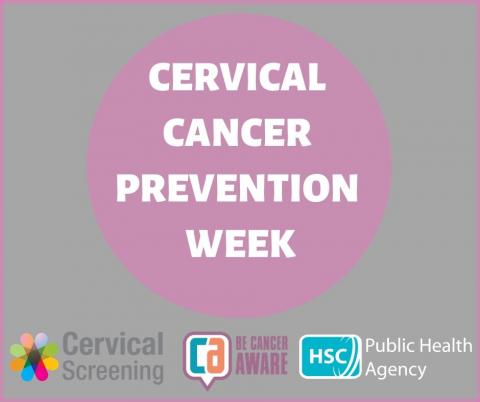Women encouraged to take up life-saving cervical screening when invited

The Public Health Agency (PHA) is taking the opportunity during Cervical Cancer Prevention Week to highlight the importance of women taking up the invitation to have cervical screening.
Statistics show that between 2013 and 2017, there was an average of 83 women diagnosed with cervical cancer each year in Northern Ireland.
Dr Damien Bennett, Consultant in Public Health Medicine at the PHA, said: “Between 2013-2017 there were around 21 deaths from cervical cancer each year in Northern Ireland. It is therefore important for women to accept their invitation for the screening test – it could save your life.
“Cervical screening aims to prevent cervical cancer from developing. It’s often called a ‘smear test’ and checks the cells from your cervix, the lower part of the womb.”
“It’s designed to pick up any changes to these so that they can be monitored or treated. Without treatment the changes can sometimes develop into cervical cancer.”
In Northern Ireland, screening is offered to women aged 25–64. This is the age group where screening is of most benefit. You will be automatically invited every three years if you are aged 25–49, and every five years if you are 50–64. If you haven’t received your invitation, or if you have any cause for concern, you should talk to your GP.
Many women will feel nervous about going for their screening test, especially if it is their first time.
“You may be worried about the actual process of having the test, as well as the results. These worries can put some women off attending at all,” said Dr Bennett.
“The test will only take a few minutes and is usually carried out by a female nurse.
“This is one of the few cancers that is preventable. It is estimated that in a well-screened population, eight out of ten cervical cancers can be prevented. I would strongly encourage all women, particularly those who have just been invited for screening for the first time, to see it as a positive step in looking after your health.”
As well as cervical screening, there is also a vaccine available that helps protect girls against cervical cancer.
“In Northern Ireland all girls and boys in Year 9 are offered the human papillomavirus (HPV) vaccine in school. The HPV vaccine helps protect against two types of the virus that cause most cases of cervical cancer (70%). We would recommend all girls and boys receive the vaccine when it is offered to them. Girls who have had the vaccine are still advised to attend for cervical screening when they are invited to do so,” added Dr Bennett.
Going for a screening test, however, doesn’t guarantee that won’t develop cancer in the future. A cancer could develop between screening tests, or there is a small chance that the test misses some changes to your cervix. Women of any age who are concerned about symptoms such as abnormal bleeding, or pain or discomfort in the lower pelvis, should seek advice from their GP, even if they attend regularly for screening.
For more information about the HPV vaccine please click here http://pha.site/hpvquestions
For further information on cervical screening please see here
http://pha.site/cervicalscreening
A video showing what happens at cervical screening may be viewed here
